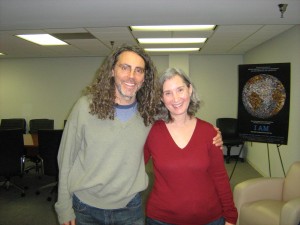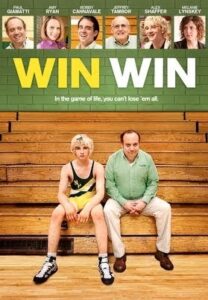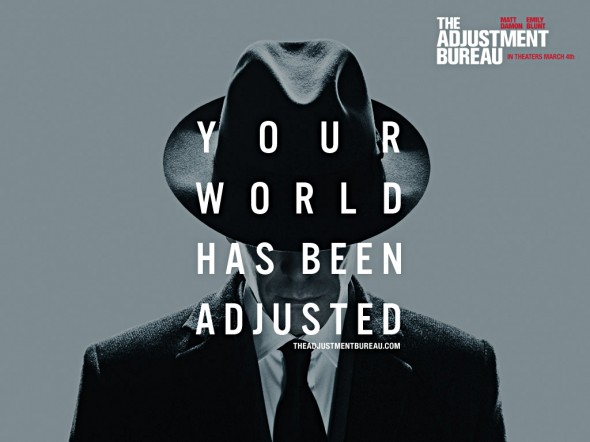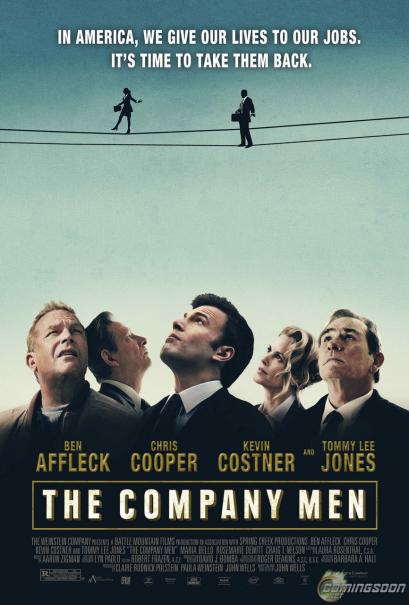Interview: Tom Shadyac of ‘I Am’
Posted on March 30, 2011 at 8:00 am
Tom Shadyac was one of the most successful directors in Hollywood. He had wealth and fame. He worked with superstars like Eddie Murphy and Jim Carrey. But a bicycle accident left him in terrible pain, physical and spiritual. He realized he was not happy or satisfied. And so he made a small documentary about two questions: what’s wrong with our world, and what can we do to make it better? The movie is filled with fascinating encounters with people who are questioning some of our most fundamental assumptions about the way we interact with each other and the universe, from cutting-edge scientists to people who study history, culture, and theology. It was a great pleasure to speak with him about his literal and spiritual journey.
How are you feeling now?
I feel so much better. I’m 95 percent and if this is as good as I get, I’m beaming. I didn’t think I’d come out of it, so even getting to 70 percent, I’m blessed. The mind-body-spirit is definitely connected for me. Not only did I call in the accident into my life because I didn’t have the courage to get out of my head and speak to my heart. So what better accident than one where I had to leave my head to feel my heart. I had been living this way in the closet and my head said you should not do a film about this or talk about it. and I didn’t have the courage to see outside the box. I believe that when I finally said I would start this conversation and share this story the tension was released in my healing and it improved by leaps and bounds.
 The most profound moment for me in the film was when you said that after you had the dream house you realized it didn’t make you happy.
The most profound moment for me in the film was when you said that after you had the dream house you realized it didn’t make you happy.
I had that message and I went on my merry way suppressing it, ignoring it. So I accumulated more — I bought a bigger house. I was being pulled along by the way we do things. Maybe the thought was there that this situation will be better, but it was a sleepwalk. That bell or this whistle will fill that emptiness.
Your late father appears in the film and he seems to have happiness figured out. He did meaningful work as the co-founder of St. Jude’s hospital in providing free medical care for sick children.
There was a sadness, though, in my father. I don’t think he saw what he did or how capable we are of creating societies based on compassion. At the end of the interview, he says he doesn’t think mankind can build businesses based on compassion because of who we are. People behave one way on Sunday and then forget about it the rest of the week. But I believe we behave that way, but that is not who we are. We’ve deluded ourselves that those ideas have to stay inside those churches and cannot walk in our daily lives. He didn’t see what he had done. He thought of the world outside St. Jude’s as competitive, angry, always at odds with each other.
The indigenous peoples you describe in the movie are very peaceful but there are others who are very violent, just like more developed societies.
That wasn’t the overriding indigenous way. They had conflicts and no one would suggest that a new society wouldn’t have conflict. But the conflicts were limited. If a person was hurt or a piece of land was taken payment had to be made for that, a warrior against a warrior. But not genocide. Not what’s happening today. There’s an ideology underlying that about our disconnection that’s run amok and it allows us to do all kinds of insane things.
You mention in the film how important it is to you to know your neighbors. That really requires a smaller community like indigenous tribes or small towns, doesn’t it?
It isn’t just the idea of small, the size of it, though that is important. But there are no barriers, no one was isolating themselves, taking all the land. A Native American had a tent; he didn’t get to own a peninsula. What we’ve built out of our society exacerbates the gap between us, between what are called the rich and the poor, though I don’t subscribe to those terms because the rich can be very poor and the poor can be very rich.
There were spiritual elements in some of your big-budget films, like “Bruce Almighty,” in which Jim Carrey gets to exercise God’s powers and learns that sacrificing for others is the most powerful thing he could do.
With my left hand I may have been helping to heal the world but with my own life I was fighting that message. “I want a more just world but not so just I can’t have everything.”
Do you think that there is a way in the context of a blockbuster film to convey the message you want to get across more effectively than with this small documentary?
That’s the kind of linear thinking that is not where I want to live. It’s important for me to do what’s on my heart and if I am called on to make a film that may touch a handful of people, I’ll do that. I do not want to be a servant of what Emerson called “the idolatry of magnitude,” that it has to be big to be important. The only giving mentioned in the Bible is the widow’s mite. She gave a penny but it was all she had and it was important. It was all she had. If a narrative film comes to me and it demands to be served, I will do it. It’s not that I wouldn’t make “Ace Ventura 3.” I would make another comedy because I believe it is sacred, a beautiful experience to bring people together to share laughter. But I would hope to behave differently as the director, not how I treat people — I always treated people respectfully. But in how I do the economy of my life. I don’t want to stand on top of a movie and say, “I am more valuable than you.” I want to say, “I want to be your brother, your sister, and I want you to be my sister, my brother,” and to have that reflected in the way I do the economic drawer of my life. If additional profits come, I want to distribute them to others. It was never mind in the first place.
How did you pick the people who appeared in this movie?
They changed me. Through the course of reading their work, seeing them interviewed, learning about their lives. “The People’s History of the United States” is a beautiful, brilliant work. The poetry of Rumi. The life of Desmond Tutu.
What was it like to meet them?
I walked into Howard’s office and it was as modest an office as I have ever been in. It spoke volumes about his modesty and humility. That is what I call integrity. Emerson says, “If you look in any drawer of a person’s life you know what a person is.” When I saw how he greeted me, when I saw his office, I saw he was open, compassionate, humble. But my economic drawer was taught to me by my society, not by my heart.
What was it like to go from a big budget film to a four-person crew?
Remember when Mel Gibson yelled out “Freedom!” in “Braveheart!?” It was very freeing to be able to see a shot and get the camera out and get the shot and not have to get a permit and a license and get the lighting and bring 240 people out there and the craft services truck. I like traveling light, an artistic extension of what is going on in my life.
Tell me more of what you have learned.
I’m much happier in this walk than I was in the isolated walk. I don’t think it’s about changing who we are; it’s about waking up to who we are. We know external things bring us joy to a certain point, but beyond that it doesn’t. How about competition bringing us together instead of separating us. Ignorance comes from the word “ignore.” We experience heaven when we serve each other. I felt that power with my father. When we feed others, we feed ourselves.









